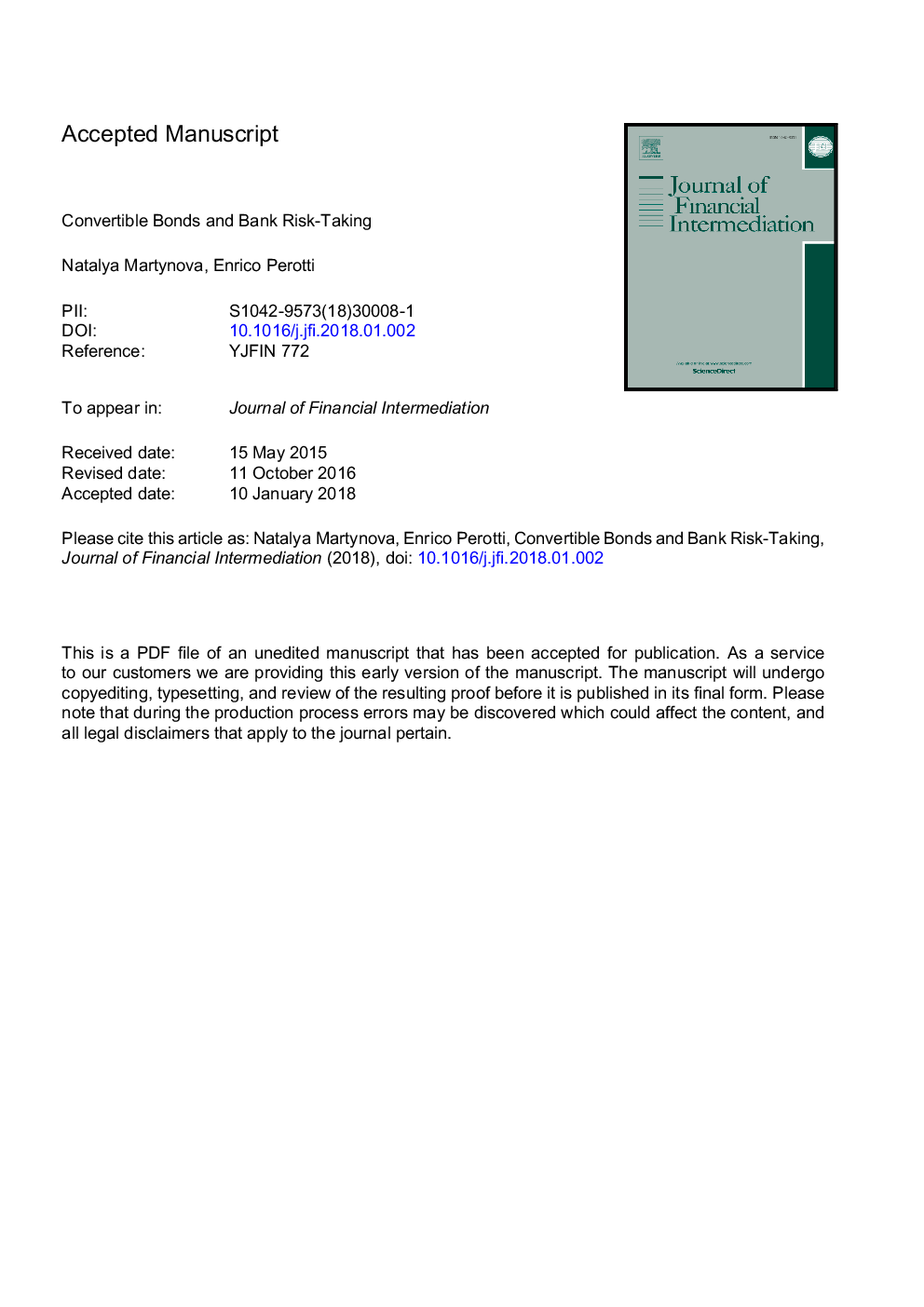| Article ID | Journal | Published Year | Pages | File Type |
|---|---|---|---|---|
| 8960880 | Journal of Financial Intermediation | 2018 | 45 Pages |
Abstract
We study how contingent capital affects banks' risk choices. When triggered in highly levered states, going-concern conversion reduces risk-taking incentives, unlike conversion at default by traditional bail-inable debt. Interestingly, contingent capital (CoCo) may be less risky than bail-inable debt as its lower priority is compensated by a lower induced risk. The main beneficial effect on risk incentives comes from reduced leverage upon conversion, while any equity dilution has the opposite effect. This is in contrast to traditional convertible debt, since CoCo bondholders have a short option position. As a result, principal write-down CoCo debt is most desirable for risk preventive purposes, although the effect may be tempered by a higher yield. The risk reduction effect of CoCo debt depends critically on the informativeness of the trigger. As it should ensure deleveraging in all states with high risk incentives, it is always inferior to pure equity.
Related Topics
Social Sciences and Humanities
Business, Management and Accounting
Strategy and Management
Authors
Natalya Martynova, Enrico Perotti,
